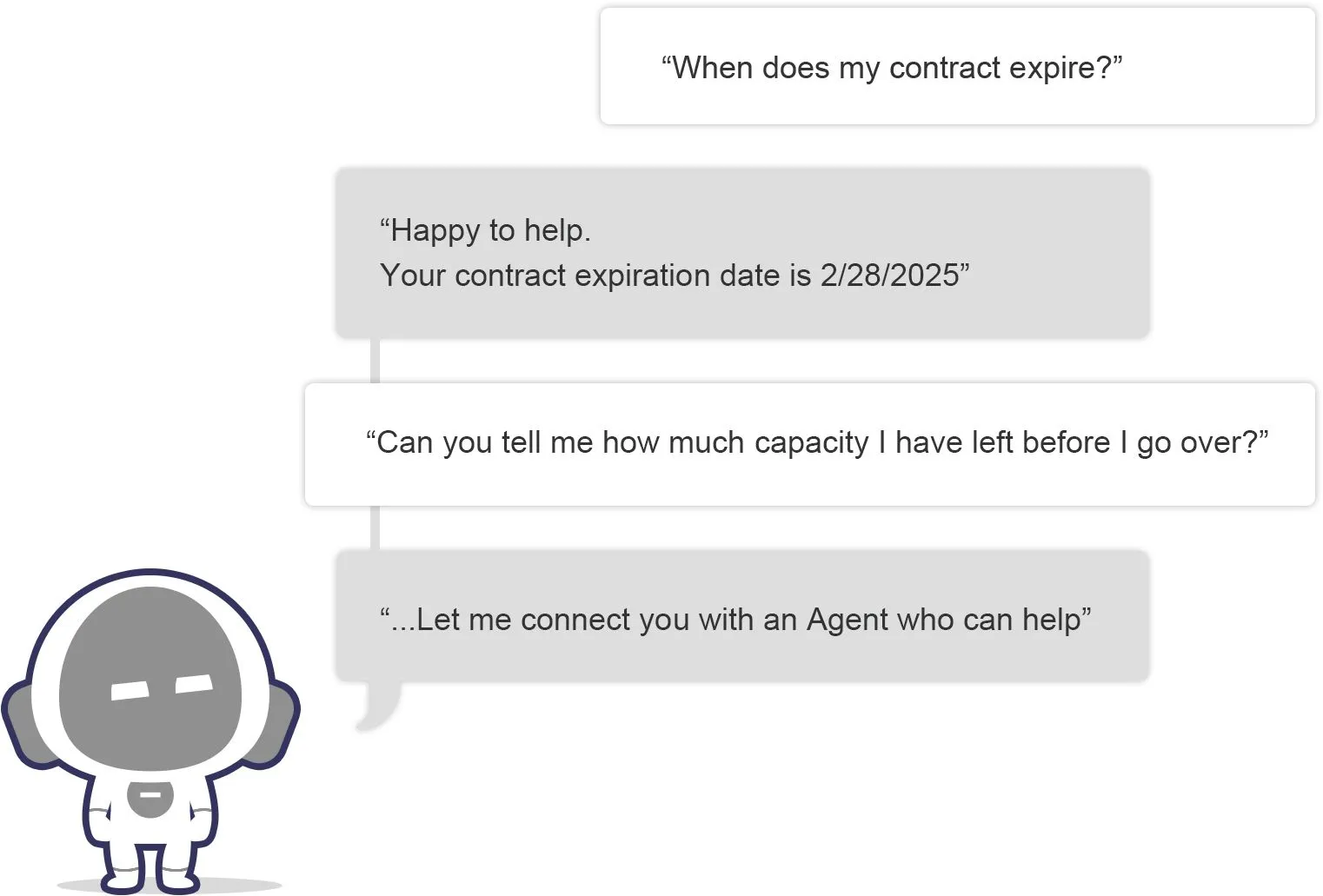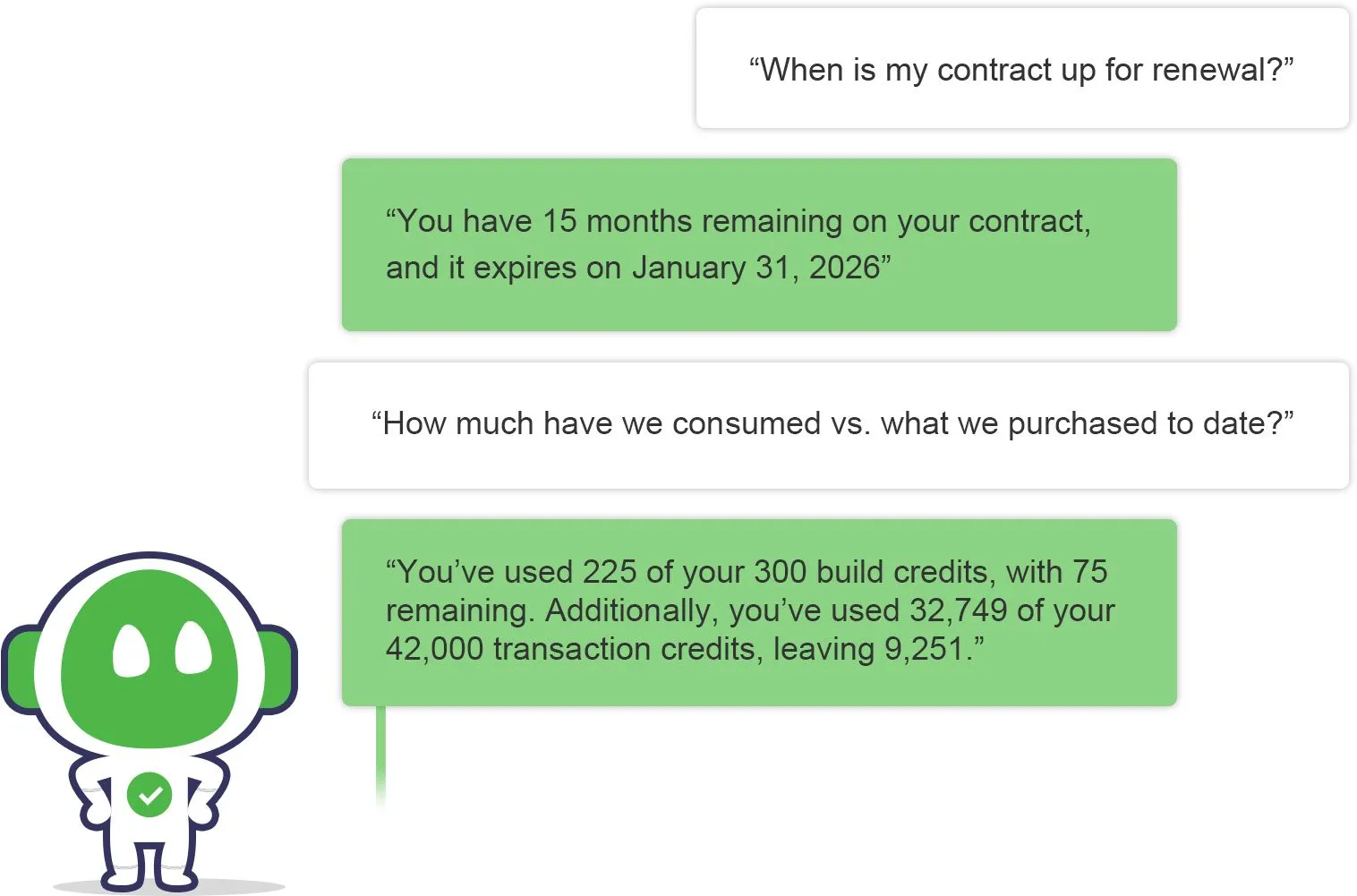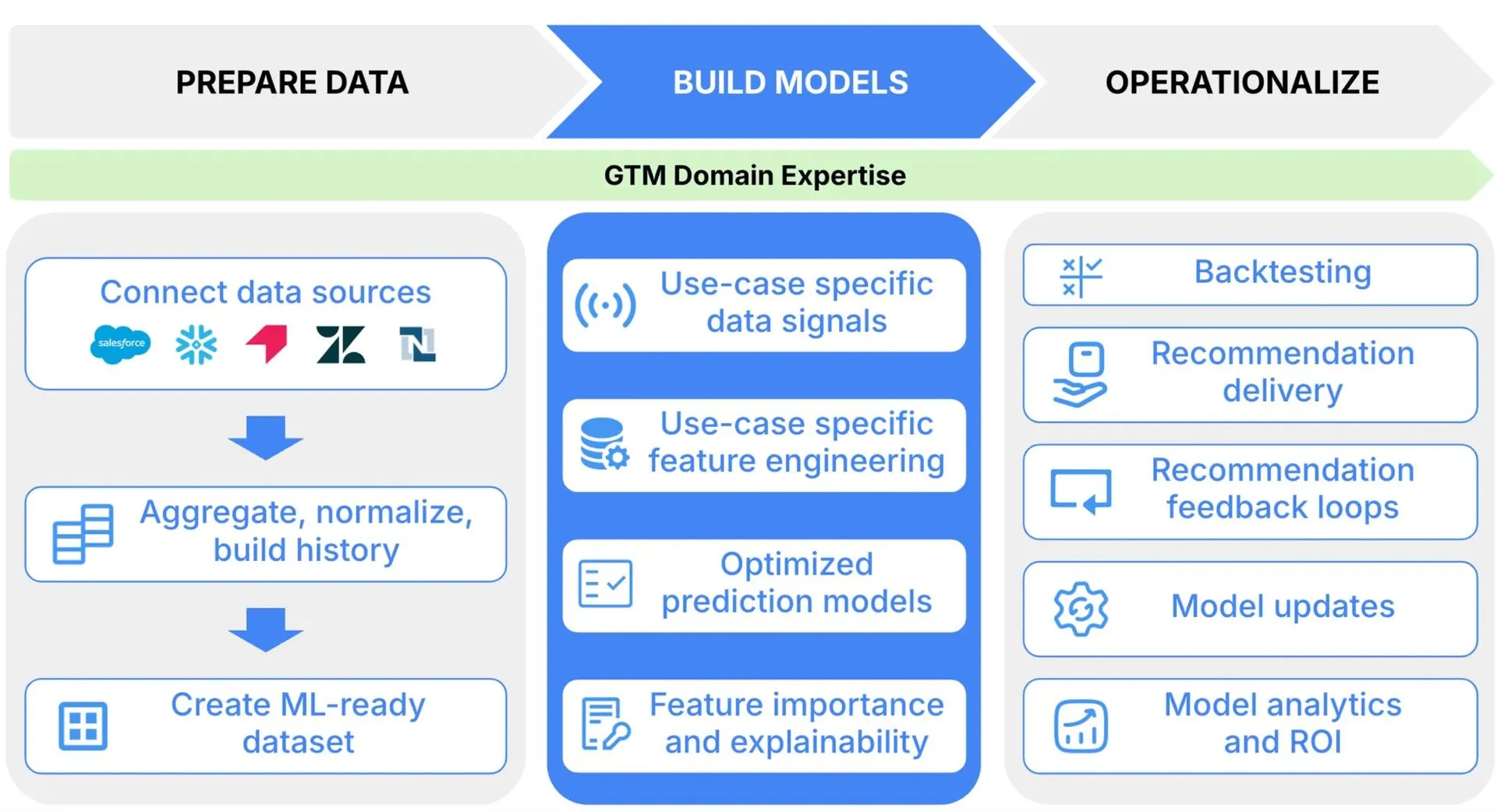Good Agent | Bad Agent: Clean Data & Predictive Models Will Power AI Agents That Actually Work

There’s a lot of noise around AI agents these days. But when I talk to executives, it’s clear that most companies are just starting to dip their toes in AI waters. They’re eager to explore the potential but uncertain about how to get from their current state to a fully realized, AI-agent-led future.
And there’s a paradox: while leaders are feeling the pressure to cut costs and do more with less, they’re simultaneously asked to drive higher revenue performance. As a result, we see ambitious plans built on assumed productivity gains from AI—but often without a realistic blueprint to capture those gains and no clear plan to fund it.
For those companies that aim to reap real, outsized benefits sooner and more predictably, achieving an AI-agent-driven future won’t happen by chance. It’ll require a targeted approach, grounded in strategic execution, data, and iterative learning. And where near-term revenue gains can fund this investment in AI, those opportunities should be prioritized.
Where Value is Emerging in AI Today
Businesses testing AI are largely focused on cost-savings and productivity: automating repetitive tasks, generating content, and smoothing out workflows across multiple datasets. While these applications help streamline operations, they’re notoriously hard to quantify in terms of value—at least for revenue generation. And that’s what companies need now: AI that drives measurable revenue, not just productivity.
The good news is that AI can directly deliver incremental revenue today. Here’s where some companies are seeing value right now:
Predicting Customer Risk and Growth: AI can give early signals on risk or growth potential across accounts, improving retention and upsell chances.
Optimizing Resource Allocation: AI can provide insights to target revenue-focused team resources more effectively, directing those team efforts to where they’ll have the biggest revenue impact.
Future AI Agents Are Only as Good as Their Data
We’ve all heard the phrase “garbage in, garbage out.” The future waves of productivity-enhancing, cost saving Autonomous AI agents will be no different. Their effectiveness will only be as good as the data feeding them. Let’s break this down with my favorite example: Good Agent vs. Bad Agent.
The Bad Agent Experience
Imagine a bot that’s deployed to support customer engagement for sales or customer success. However, this agent is working with scattered, inconsistent data, lacking historical depth and predictive modeling.

This agent can only respond to simple inquiries, with no predictive insight or understanding of customer needs. The result? A hand-off to a human and a missed opportunity for a meaningful interaction, leaving the customer feeling disconnected.
The Good Agent Experience
Now, let’s take an AI agent supported by rich, clean data with a comprehensive history and predictive models.

The agent can even offer proactive insights:

This Good Agent experience not only fulfills the customer’s immediate needs but also guides them toward a potential upsell, all while enhancing their experience and strengthening their relationship with the business.
The Good Agent Experience
The Good Agent scenario might feel out of reach, but with the right steps, it’s closer than you think. Leveraging the proven capabilities of AI solutions in the market today, within a year companies can set themselves up to achieve this level of AI Agent capability. This targeted, incremental approach generated immediate revenue to fund these investments.
Organize Customer Data: Aggregate, normalize, and build out the history necessary for AI models to “understand” customer insights from structured data sets companies already own.
Capture Incremental Revenue: Use AI now to drive near-term revenue by investing scarce resources in the customers that will produce the biggest revenue impact.
Prepare for Good Agent Experiences: Establish a foundation that will support agent-driven interactions.
How Reef AI Powers the Journey to Good Agents
At Reef AI, we’re not selling an AI-driven future as some lofty goal. Instead, we focus on driving near-term, measurable revenue while preparing your data for future AI-agent-led engagement. With our AI/ML-powered Outcome-Based Scoring (OBS) approach, we help companies target specific revenue outcomes like churn reduction, consumption forecasting, and upsell targeting.
Reef’s OBS approach replaces generalized customer health scores with precise predictive models, each optimized for a specific revenue outcome. Every Reef OBS model is trained on historical key customer data events, as well as from ongoing feedback from team and customer actions. It then identifies and recommends the incremental steps Sales/CS teams can take proactively now, to retain and expand revenue.
The Reef AI Platform
Reef AI does more than scoring—it drives action and results through a focused, data-powered approach. The Reef AI platform:
Organizes Data for Actionable Insights: Reef brings all of your relevant customer data together, normalizing it, and creating a rich historical view.
Deploys Targeted, Predictive Models: Reef AI's library of ML models are each tailored to specific revenue drivers, from customer growth to churn prediction.
Automates and Tracks Impact: With built-in backtesting, model analytics, and ROI tracking, the platform continuously measures impact, ensuring teams see the ROI on every interaction.

The Good Agent experiences are going to be one of the largest disruptive forces helping consumers and the companies that serve them. To get there faster and more predictably, every company can take steps now to bring them closer to this future. By focusing existing AI / ML solutions on revenue-driving use cases today, you’re not just improving current performance. You’re self-funding the building of the data foundation that will power autonomous AI agents and sustained competitive advantage tomorrow.


